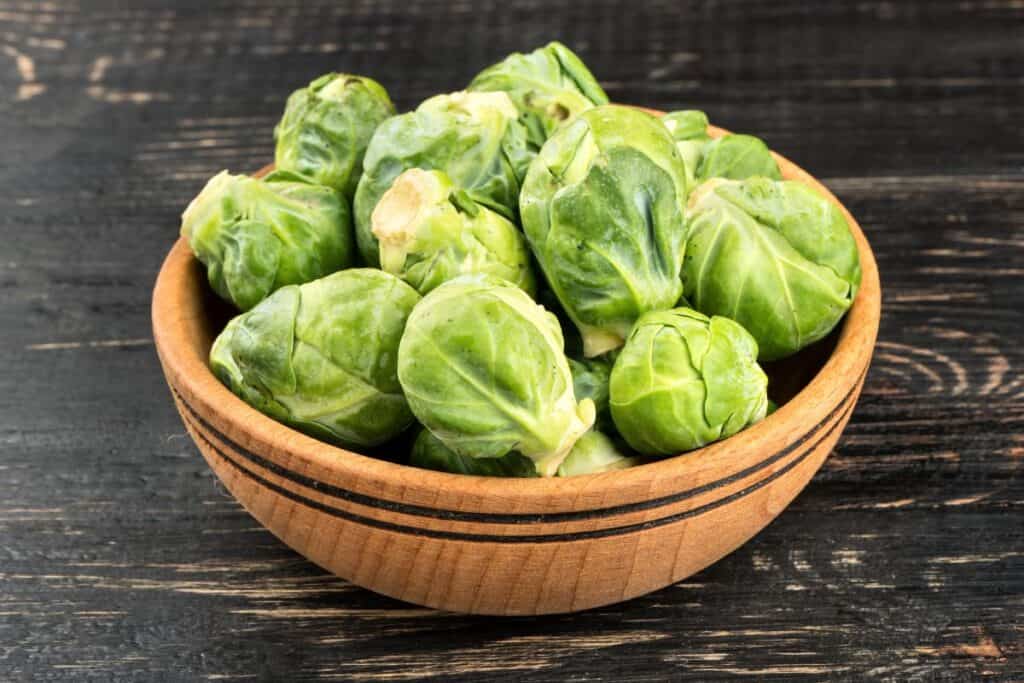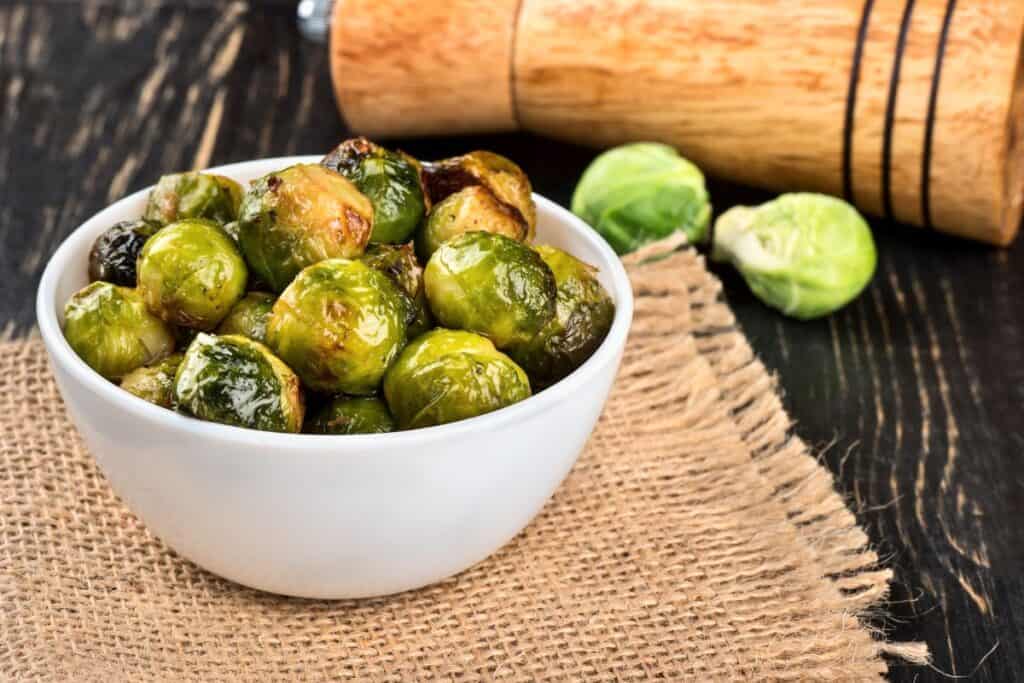If you suffer from irritable bowel syndrome (IBS) or other digestive issues, you may have heard of the low FODMAP diet. This diet involves avoiding certain types of carbohydrates that can be difficult to digest and may cause digestive symptoms such as bloating, gas, and abdominal pain. Brussels sprouts are a popular vegetable that many people enjoy, but are they low FODMAP?

The answer is yes, Brussels sprouts are low FODMAP, but as with many foods, portion size matters. According to Monash University, a leading authority on the low FODMAP diet, a serving size of three to four Brussels sprouts is considered safe to eat. However, larger portions may contain higher levels of FODMAPs that could trigger symptoms in some people.
It’s important to note that while Brussels sprouts are low FODMAP, they are also known to cause bloating in some people due to their high fiber content. If you do experience symptoms after eating Brussels sprouts, it may be worth reducing your portion size or avoiding them altogether. As with any dietary change, it’s always a good idea to talk to your healthcare provider or a registered dietitian before making any significant changes to your diet.
Understanding FODMAPs
What Are FODMAPs?
FODMAPs are a group of short-chain carbohydrates that are not well absorbed in the small intestine. The acronym FODMAP stands for Fermentable Oligosaccharides, Disaccharides, Monosaccharides, and Polyols. These carbohydrates are found in a wide variety of foods, including fruits, vegetables, grains, dairy products, and sweeteners.
FODMAPs and Digestion
When FODMAPs are not absorbed in the small intestine, they travel to the large intestine where they are fermented by bacteria. This fermentation process can cause digestive symptoms such as bloating, gas, abdominal pain, and diarrhea. For people with irritable bowel syndrome (IBS) and other digestive disorders, reducing the intake of FODMAPs can help alleviate these symptoms.
It’s important to note that not all FODMAPs are created equal. Some FODMAPs may be better tolerated than others, and the amount of FODMAPs that trigger symptoms can vary from person to person. For example, some people may be able to tolerate small amounts of fructose, while others may need to avoid it completely.
To determine which FODMAPs are problematic for you, it’s recommended to work with a registered dietitian who specializes in the low FODMAP diet. They can help you identify which high FODMAP foods to avoid and which low FODMAP foods to include in your diet.
In summary, FODMAPs are a group of short-chain carbohydrates that can cause digestive symptoms in some people. Reducing the intake of high FODMAP foods can help alleviate these symptoms. However, it’s important to work with a registered dietitian to determine which FODMAPs are problematic for you and to ensure that your diet is still balanced and nutritious.

Brussel Sprouts and FODMAP Levels
If you’re following a low FODMAP diet, you may be wondering whether Brussels sprouts are allowed in your diet. Brussels sprouts are a crunchy, nutrient-packed vegetable that can be a great addition to any meal. But are they low FODMAP? Let’s explore!
FODMAP Content in Brussel Sprouts
Brussels sprouts contain fructans, a type of FODMAP that can cause digestive discomfort in some people. However, the good news is that Brussels sprouts are considered low FODMAP in small servings (below 75g). This means that you can still enjoy Brussels sprouts as part of a balanced diet without triggering your IBS symptoms.
Serving Size Considerations
While Brussels sprouts are low FODMAP in small servings, it’s important to keep serving size in mind. Large servings of Brussels sprouts can cause discomfort, especially if you’re sensitive to fructans. To avoid this, it’s recommended that you stick to a serving size of 75g or less per meal.
When preparing Brussels sprouts, there are a few things you can do to make them more FODMAP-friendly. For example, roasting Brussels sprouts at a high temperature for around 20-25 minutes can help break down the FODMAPs and enhance their flavor. To roast Brussels sprouts, preheat your oven to 425°F (220°C). Trim the tough ends of the Brussels sprouts, cut them in half, and toss them with olive oil, salt, and pepper.
In summary, Brussels sprouts can be a great addition to a low FODMAP diet in small servings. Just be mindful of your serving size and try different cooking methods to make them more FODMAP-friendly.
Managing a Low FODMAP Diet

If you are following a low FODMAP diet, it is important to make sure you are incorporating a variety of low FODMAP foods into your meals. Brussel sprouts are a low FODMAP vegetable that can be incorporated into your diet in a variety of ways.
Incorporating Brussel Sprouts
Brussel sprouts can be a nutritious addition to your low FODMAP diet. They are low in calories and high in fiber, vitamins, and minerals. To incorporate Brussel sprouts into your diet, try roasting them with a little olive oil and salt. You can also add them to salads or stir-fries.
When incorporating Brussel sprouts into your diet, it is important to keep your portion sizes in mind. While Brussel sprouts are low FODMAP, eating too many can cause discomfort. Stick to a serving size of about 1/2 cup.
Balancing Your Diet
When following a low FODMAP diet, it is important to make sure you are getting a balanced intake of nutrients. Incorporating a variety of low FODMAP fruits, vegetables, grains, and proteins can help ensure you are getting all the nutrients you need.
To help balance your diet, try making a meal plan for the week. This can help you make sure you are getting a variety of foods and can also save you time and money. When planning your meals, try to incorporate a variety of colors and textures to keep things interesting.
Remember, a low FODMAP diet is not meant to be a long-term solution. If you are experiencing symptoms of IBS, it is important to talk to your doctor to rule out any underlying conditions.

